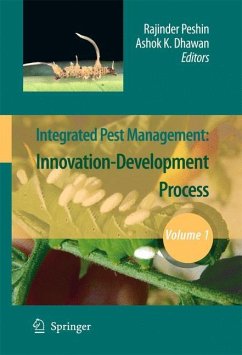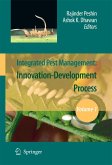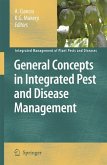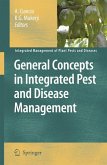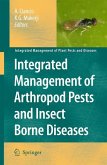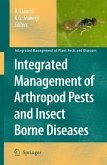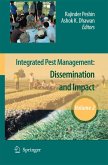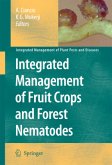The book 'Silent Spring' written by Rachel Carson in 1962, is considered the la- mark in changing the attitude of the scientists and the general public regarding the complete reliance on the synthetic pesticides for controlling the ravages caused by the pests in agriculture crops. For about ve decades, the Integrated Pest Mana- ment (IPM) is the accepted strategy for managing crop pests. IPM was practiced in Canet e Valley, Peru in 1950s, even before the term IPM was coined. Integrated Pest management: Innovation-Development Process, Volume 1, focuses on the recog- tion of the dysfunctional consequences of the pesticide use in agriculture, through researchanddevelopmentoftheIntegratedPest Managementinnovations. Thebook aims to update the information on the global scenario of IPM with respect to the use of pesticides, its dysfunctional consequences, and the concepts and advan- ments made in IPM systems. This book is intended as a text as well as reference material for use in teachingthe advancements made in IPM. The book provides an interdisciplinary perspective of IPM by the forty-three experts from the eld of entomology, plant pathology, plant breeding, plant physiology, biochemistry, and extension education. The introductory chapter (Chapter 1) gives an overview of IPM initiatives in the developed and developing countries from Asia, Africa, Australia, Europe, Latin America and North America. IPM concepts, opportunities and challenges are d- cussed in Chapter 2.
From the reviews: "Peshin ... and Dhawan (Punjab Agricultural Univ., India) have assembled an interdisciplinary team of 43 experts from eight countries to produce an encyclopedic overview of fundamental concepts and recent advances in integrated pest management (IPM). Their ambitious undertaking is well executed, with a ... combination of breath and detail, and a truly global perspective. The volume is carefully edited and amply referenced. ... For those whose studies relate to IPM, this collection will be an invaluable resource. Summing Up: Highly recommended. Upper-division undergraduates through researchers/faculty." (M. K. Bomford, Choice, Vol. 47 (3), November, 2009)

